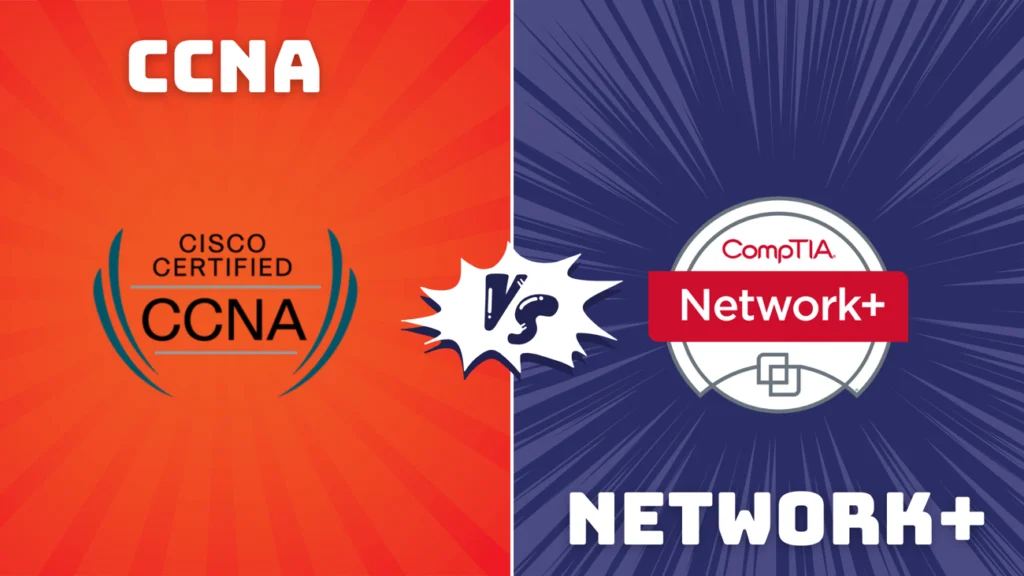CCNA Security, or Cisco Certified Network Associate Security, is a certification program offered by Cisco Systems that validates the skills and knowledge required to secure Cisco networks. This certification is designed for network security specialists, security administrators, and network security support engineers. CCNA Security focuses on the core security technologies, installation, troubleshooting, and monitoring of network devices to maintain the integrity, confidentiality, and availability of data and devices. The certification also covers the technologies used to implement security policies and procedures, as well as the best practices for securing networks.
CCNA Security is an essential certification for IT professionals who want to specialize in network security. It provides a solid foundation in network security principles and technologies, and it is recognized globally as a benchmark for network security expertise. The certification is also a stepping stone to more advanced security certifications, such as the Cisco Certified Security Professional (CCSP) and the Cisco Certified Internetwork Expert Security (CCIE Security). With the increasing number of cyber threats and attacks, the demand for skilled network security professionals is on the rise, making CCNA Security a valuable certification for IT professionals looking to advance their careers in the field of network security.
Key Takeaways
- CCNA Security is a certification program that equips individuals with the skills and knowledge to secure Cisco networks.
- Network security involves protecting the integrity, confidentiality, and availability of data and resources within a network.
- CCNA Security certification enables individuals to implement security measures such as firewalls, VPNs, and intrusion prevention systems.
- The benefits of CCNA Security certification include increased job opportunities, higher earning potential, and validation of security skills.
- Securing networks with CCNA Security involves identifying and mitigating security threats, implementing security policies, and ensuring network compliance with security standards.
Understanding Network Security
Network security is the practice of securing a computer network infrastructure from unauthorized access, misuse, and threats. It involves the implementation of various technologies, processes, and policies to protect the network and the data it carries from unauthorized access, disclosure, disruption, modification, or destruction. Network security aims to ensure the confidentiality, integrity, and availability of data and resources within a network. There are several key components of network security, including access control, authentication, encryption, firewalls, intrusion detection systems, and virtual private networks.
Access control is a fundamental aspect of network security that involves restricting access to resources based on user credentials and permissions. Authentication is the process of verifying the identity of users or devices attempting to access the network. Encryption is used to protect data from unauthorized access by converting it into a form that can only be read with the correct decryption key. Firewalls are used to monitor and control incoming and outgoing network traffic based on predetermined security rules. Intrusion detection systems are designed to detect and respond to unauthorized access attempts or security breaches. Virtual private networks (VPNs) provide secure remote access to a private network over a public network such as the internet.
Network security is essential for protecting sensitive information, maintaining regulatory compliance, and safeguarding the reputation and operations of an organization. With the increasing sophistication of cyber threats, organizations need to invest in robust network security measures to mitigate risks and protect their assets.
Implementing Security Measures with CCNA Security
CCNA Security equips IT professionals with the skills and knowledge needed to implement security measures in Cisco networks. The certification covers a wide range of topics related to network security, including secure access control, VPNs, secure routing and switching infrastructure, threat control and containment, and secure network architecture. IT professionals who earn the CCNA Security certification are proficient in implementing security policies using Cisco security technologies such as firewalls, intrusion prevention systems (IPS), virtual private networks (VPNs), and secure access control.
Secure access control is a critical aspect of network security that involves controlling access to network resources based on user identity and permissions. CCNA Security teaches IT professionals how to configure and manage Cisco routers and switches to enforce secure access control policies. VPNs are essential for providing secure remote access to a private network over a public network such as the internet. CCNA Security covers the implementation and management of VPNs using Cisco technologies to ensure secure communication over untrusted networks.
Secure routing and switching infrastructure is vital for protecting the integrity and availability of data within a network. CCNA Security provides IT professionals with the skills to configure and manage secure routing and switching using Cisco technologies such as Access Control Lists (ACLs) and Secure Shell (SSH) protocol. Threat control and containment are crucial for identifying and mitigating security threats within a network. CCNA Security teaches IT professionals how to configure and manage Cisco firewalls and intrusion prevention systems to detect and respond to security threats effectively.
Secure network architecture involves designing and implementing a secure network infrastructure that can withstand cyber threats and attacks. CCNA Security covers the best practices for designing secure network architectures using Cisco technologies to ensure the confidentiality, integrity, and availability of data and resources within a network.
Benefits of CCNA Security Certification
| Benefits of CCNA Security Certification |
|---|
| 1. Enhanced knowledge of network security principles |
| 2. Increased job opportunities and career advancement |
| 3. Recognition as a skilled and certified professional |
| 4. Ability to implement and maintain secure network infrastructures |
| 5. Higher earning potential |
Earning the CCNA Security certification offers numerous benefits for IT professionals looking to advance their careers in network security. The certification validates the skills and knowledge required to secure Cisco networks, making it a valuable credential for IT professionals seeking employment in roles such as network security specialist, security administrator, or network security support engineer. CCNA Security is recognized globally as a benchmark for network security expertise, providing IT professionals with a competitive edge in the job market.
CCNA Security also serves as a stepping stone to more advanced security certifications offered by Cisco Systems, such as the Cisco Certified Security Professional (CCSP) and the Cisco Certified Internetwork Expert Security (CCIE Security). These advanced certifications are highly sought after by employers and can lead to higher-paying job opportunities in the field of network security.
In addition to career advancement opportunities, earning the CCNA Security certification demonstrates a commitment to professional development and continuous learning. It showcases an IT professional’s dedication to staying current with the latest technologies and best practices in network security. This commitment to ongoing education can enhance an individual’s professional reputation and open doors to new career opportunities.
Securing Networks with CCNA Security
Securing networks with CCNA Security involves implementing various security measures to protect Cisco networks from unauthorized access, misuse, and threats. The certification covers a wide range of topics related to network security, including secure access control, VPNs, secure routing and switching infrastructure, threat control and containment, and secure network architecture.
Secure access control is essential for controlling access to network resources based on user identity and permissions. CCNA Security teaches IT professionals how to configure and manage Cisco routers and switches to enforce secure access control policies using technologies such as Access Control Lists (ACLs) and Secure Shell (SSH) protocol.
VPNs are crucial for providing secure remote access to a private network over a public network such as the internet. CCNA Security covers the implementation and management of VPNs using Cisco technologies to ensure secure communication over untrusted networks.
Secure routing and switching infrastructure is vital for protecting the integrity and availability of data within a network. CCNA Security provides IT professionals with the skills to configure and manage secure routing and switching using Cisco technologies such as ACLs and SSH protocol.
Threat control and containment are crucial for identifying and mitigating security threats within a network. CCNA Security teaches IT professionals how to configure and manage Cisco firewalls and intrusion prevention systems to detect and respond to security threats effectively.
Secure network architecture involves designing and implementing a secure network infrastructure that can withstand cyber threats and attacks. CCNA Security covers the best practices for designing secure network architectures using Cisco technologies to ensure the confidentiality, integrity, and availability of data and resources within a network.
Career Opportunities with CCNA Security

Earning the CCNA Security certification opens up a wide range of career opportunities for IT professionals in the field of network security. The certification validates the skills and knowledge required to secure Cisco networks, making it a valuable credential for individuals seeking employment in roles such as network security specialist, security administrator, or network security support engineer.
CCNA Security is recognized globally as a benchmark for network security expertise, providing IT professionals with a competitive edge in the job market. Employers value candidates who hold this certification because it demonstrates their proficiency in implementing security measures in Cisco networks.
In addition to entry-level positions in network security, earning the CCNA Security certification can lead to more advanced career opportunities in the field. The certification serves as a stepping stone to more advanced security certifications offered by Cisco Systems, such as the Cisco Certified Security Professional (CCSP) and the Cisco Certified Internetwork Expert Security (CCIE Security). These advanced certifications are highly sought after by employers and can lead to higher-paying job opportunities in the field of network security.
IT professionals who hold the CCNA Security certification are well-positioned to pursue roles such as network security analyst, information security manager, cybersecurity consultant, or security architect. These roles often come with competitive salaries and opportunities for professional growth and advancement within organizations.
Conclusion and Next Steps
In conclusion, CCNA Security is an essential certification for IT professionals who want to specialize in network security. The certification provides a solid foundation in network security principles and technologies, making it a valuable credential for individuals seeking employment in roles such as network security specialist, security administrator, or network security support engineer.
Earning the CCNA Security certification offers numerous benefits, including career advancement opportunities, recognition as a global benchmark for network security expertise, and a commitment to professional development and continuous learning. The certification also serves as a stepping stone to more advanced security certifications offered by Cisco Systems, leading to higher-paying job opportunities in the field of network security.
For IT professionals interested in pursuing a career in network security, earning the CCNA Security certification is an important first step. It demonstrates proficiency in implementing security measures in Cisco networks and opens up a wide range of career opportunities in the field. Additionally, individuals who hold this certification can continue their professional development by pursuing more advanced certifications offered by Cisco Systems, further enhancing their skills and knowledge in network security.
FAQs
What is CCNA Security?
CCNA Security is a certification program offered by Cisco that validates the skills and knowledge required to secure Cisco networks. It covers core security technologies, installation, troubleshooting, and monitoring of network devices to maintain the integrity, confidentiality, and availability of data and devices.
What are the prerequisites for CCNA Security certification?
To pursue CCNA Security certification, candidates must have a valid CCENT, CCNA Routing and Switching, or any CCIE certification.
What topics are covered in the CCNA Security certification exam?
The CCNA Security certification exam covers topics such as security concepts, secure access, VPN, secure routing and switching, Cisco firewall technologies, intrusion prevention systems, and content and endpoint security.
What are the career opportunities for CCNA Security certified professionals?
CCNA Security certified professionals can pursue careers as network security specialists, security administrators, network security support engineers, and security analysts. They can work in various industries such as healthcare, finance, government, and technology.
How can I prepare for the CCNA Security certification exam?
Candidates can prepare for the CCNA Security certification exam by taking official training courses offered by Cisco, studying relevant books and resources, and practicing with hands-on labs and simulations. Cisco also provides study materials and practice exams to help candidates prepare for the exam.














